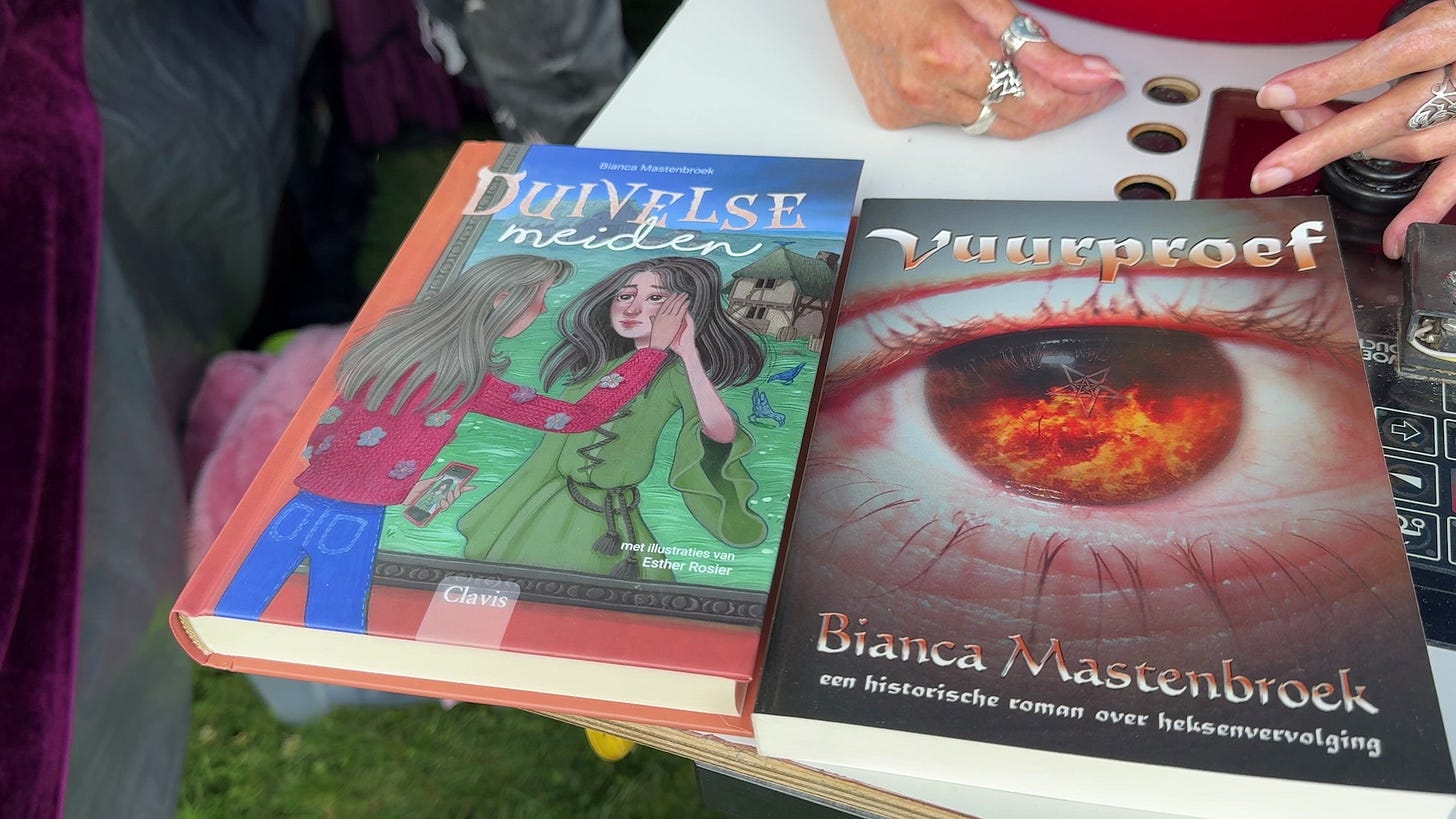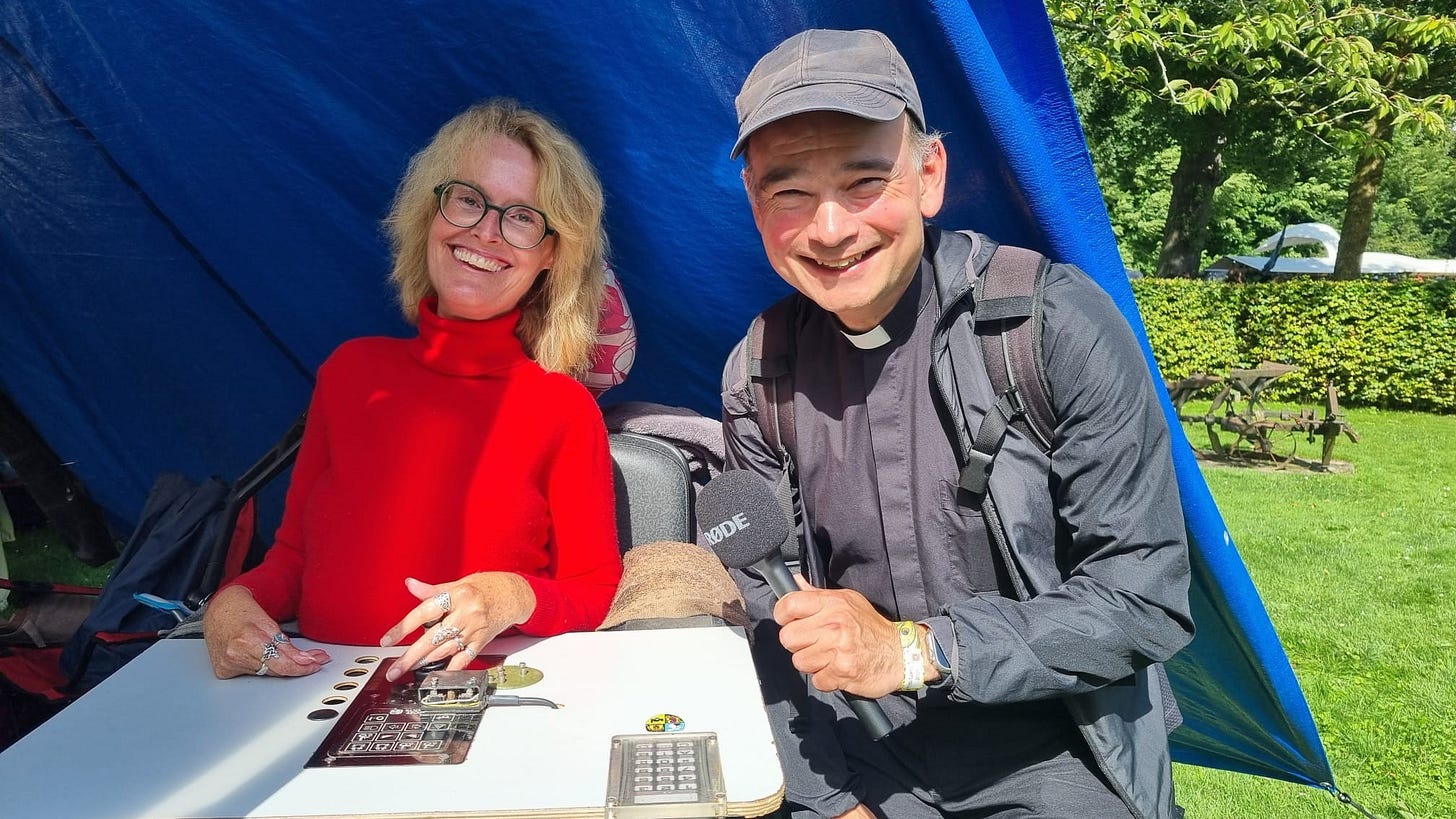“Stories remind us what happened then—and warn us not to do it again.”
Bianca Mastenbroek on witch trials, scapegoats, and why history’s silenced women still matter today.
Bianca Mastenbroek (born October 29, 1975, in De Moer) is a Dutch author whose career spans more than forty books across genres—children’s literature, young adult, fantasy, and historical fiction. She made her debut in 2008 with Vuurproef (Trial by Fire), a gripping historical novel about witch persecution, and her latest works, including Duivelse Meiden, continue to resonate with themes of fear, gossip, and exclusion.
Writing from the Start
“I always wanted to be a writer,” Bianca recalls. As a girl, she filled notebooks and hammered out entire books on an old typewriter. Later, school and university interrupted her creative flow, but as she puts it with a Dutch saying: “the blood goes where it can’t go.”
When the urge to write returned, she made a radical choice: she quit her job, took writing courses, and decided to build a life as an author. By 2008, her debut novel Vuurproef was in readers’ hands.
Her path hasn’t been without obstacles. A muscle disease means she now uses a wheelchair and can’t type her stories in the traditional way. Instead, she writes them all through dictation software. “I don’t even have a keyboard by my computer anymore,” she explains elsewhere. Speaking her books into existence has become second nature—and with more than forty titles published, her voice has proven unstoppable.
History Repeated in Fiction
Her first novel, Vuurproef, is rooted in real events: in 1559, in the Brabant region of the Netherlands, more than 30 women were accused of witchcraft. The hysteria began in Cranendonck and spread like wildfire until it finally stopped in Asten, when Belgian authorities began to question whether the trials were even legal.
“One day your neighbor is just your neighbor, and the next day people believe she’s a witch,” Bianca says. Through multiple perspectives—the accused, the accusers, and ordinary villagers—she explores how entire communities could come to believe the unbelievable.
Her recent novel Duivelse Meiden (Devilish Girls) carries the same echo into the present: a contemporary school drama intertwined with the historical story of a girl accused of witchcraft. The book shows how easily gossip, loneliness, and social cruelty can still become a modern form of persecution.
Scapegoats Then and Now
When asked what she hopes readers take away, Bianca is clear: history isn’t over. “There are still women being accused of witchcraft in 33 countries. It’s not over.”
Her books ask us to look at how we treat one another now. Do we demonize others, create scapegoats, or let gossip become truth?
“Every time I finish a historical book, I think: we really haven’t learned a thing.”
A Pirate’s Life
And despite the heavy themes of much of her work, she is currently writing something lighter: a pirate story full of humor. “A really bad pirate,” she laughs. You can hear the joy in her voice when she speaks about it. “Writing is my passion. It’s my everything.”
Closing Thought
Bianca Mastenbroek’s career reminds us that creativity adapts, even in the face of obstacles. Her stories of witch trials and scapegoats don’t just illuminate the past—they warn us about the present. And her own perseverance proves something equally important: that when passion is strong enough, the voice will always find a way.
Read more about Bianca Mastenbroek on her English website
Follow Bianca on Facebook, Instagram and YouTube.
Watch the video of the interview:





Hats off to Bianca!